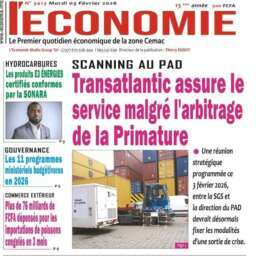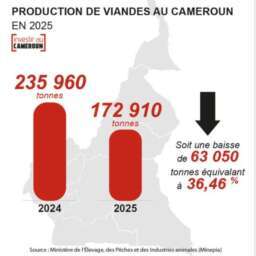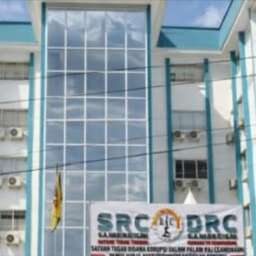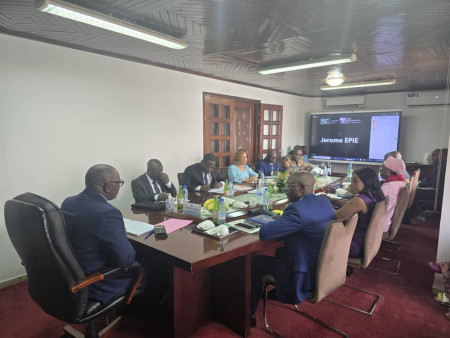(Business in Cameroon) – Cameroon’s Directorate General of Customs and the China Town Transit Consortium (CCTT) have moved to enforce their cooperation protocol designed to secure state income and combat illicit trade.
The Joint Monitoring Committee overseeing the implementation of the protocol convened on Tuesday 21 October 2025 at the Customs Headquarters in Yaounde. The session was chaired by Fongod Edwin Nuvaga, Director General of Customs and President of the Committee. It aimed to assess the initial steps in applying the December 2024 Customs-CCTT protocol agreement and to align both parties on the measures required for full execution.
The protocol, signed on 10 December 2024 in Yaounde, seeks to ensure that customs revenues are collected efficiently and transparently while simplifying clearance procedures for members of the CCTT. It is also designed to speed up import and export operations, reduce bottlenecks in goods clearance and strengthen the fight against illicit trade and customs fraud, which continues to erode national revenues.
Both institutions have specific commitments under the agreement intended to realise these objectives. The joint committee was established to supervise the implementation of the protocol, settle any disputes arising from its application, and evaluate progress quarterly or whenever necessary.
Its membership reflects both sides of the partnership. The Customs delegation includes Ousseini Hadjidja, Njock Raphaël, Nhanag Samuel and Mimche Ngambe Ibrahim, while the CCTT is represented by Wang Hailin, Tiafung Stanley, Weng Youpen and Kameni Myriam.
During the working session, members of the committee reviewed progress since the agreement came into force, pinpointed operational challenges and outlined corrective actions. Among the outcomes, the CCTT was tasked with compiling and submitting a detailed report listing the difficulties encountered in the field. The committee also agreed to initiate consultations with other actors involved in the clearance chain to enhance coordination and promote a mutually beneficial partnership.
According to officials, the collaboration is expected to reinforce customs surveillance mechanisms, accelerate cargo processing and close revenue leakages often linked to under-declaration and informal transactions. The monitoring committee will continue to meet regularly to assess impact and propose technical improvements to sustain compliance and efficiency.
The Customs-CCTT framework forms part of broader administrative reforms aimed at modernising Cameroon’s customs system, improving service delivery and protecting State revenues.
Mercy Fosoh



































